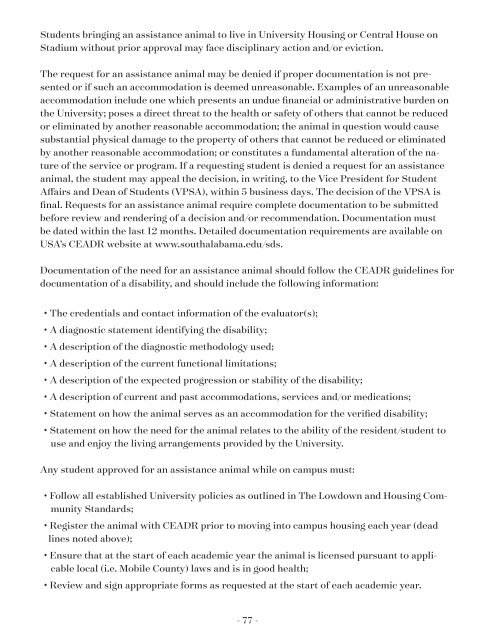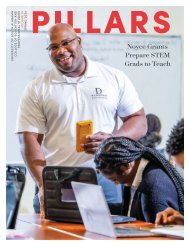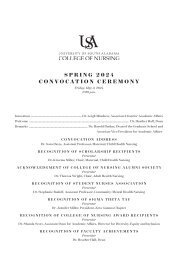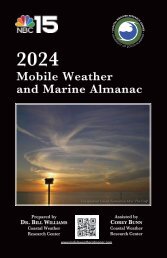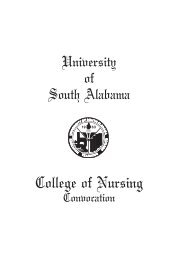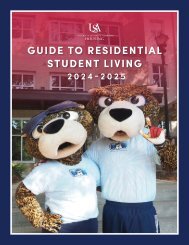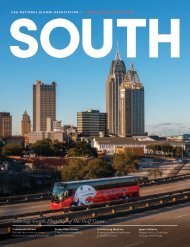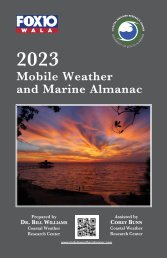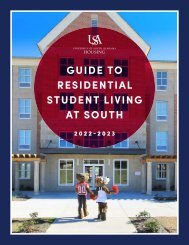The Lowdown 23-24
University of South Alabama Student Handbook
University of South Alabama Student Handbook
You also want an ePaper? Increase the reach of your titles
YUMPU automatically turns print PDFs into web optimized ePapers that Google loves.
Students bringing an assistance animal to live in University Housing or Central House on<br />
Stadium without prior approval may face disciplinary action and/or eviction.<br />
<strong>The</strong> request for an assistance animal may be denied if proper documentation is not presented<br />
or if such an accommodation is deemed unreasonable. Examples of an unreasonable<br />
accommodation include one which presents an undue financial or administrative burden on<br />
the University; poses a direct threat to the health or safety of others that cannot be reduced<br />
or eliminated by another reasonable accommodation; the animal in question would cause<br />
substantial physical damage to the property of others that cannot be reduced or eliminated<br />
by another reasonable accommodation; or constitutes a fundamental alteration of the nature<br />
of the service or program. If a requesting student is denied a request for an assistance<br />
animal, the student may appeal the decision, in writing, to the Vice President for Student<br />
Affairs and Dean of Students (VPSA), within 5 business days. <strong>The</strong> decision of the VPSA is<br />
final. Requests for an assistance animal require complete documentation to be submitted<br />
before review and rendering of a decision and/or recommendation. Documentation must<br />
be dated within the last 12 months. Detailed documentation requirements are available on<br />
USA’s CEADR website at www.southalabama.edu/sds.<br />
Documentation of the need for an assistance animal should follow the CEADR guidelines for<br />
documentation of a disability, and should include the following information:<br />
• <strong>The</strong> credentials and contact information of the evaluator(s);<br />
• A diagnostic statement identifying the disability;<br />
• A description of the diagnostic methodology used;<br />
• A description of the current functional limitations;<br />
• A description of the expected progression or stability of the disability;<br />
• A description of current and past accommodations, services and/or medications;<br />
• Statement on how the animal serves as an accommodation for the verified disability;<br />
• Statement on how the need for the animal relates to the ability of the resident/student to<br />
use and enjoy the living arrangements provided by the University.<br />
Any student approved for an assistance animal while on campus must:<br />
• Follow all established University policies as outlined in <strong>The</strong> <strong>Lowdown</strong> and Housing Community<br />
Standards;<br />
• Register the animal with CEADR prior to moving into campus housing each year (dead<br />
lines noted above);<br />
• Ensure that at the start of each academic year the animal is licensed pursuant to applicable<br />
local (i.e. Mobile County) laws and is in good health;<br />
• Review and sign appropriate forms as requested at the start of each academic year.<br />
- 77 -


